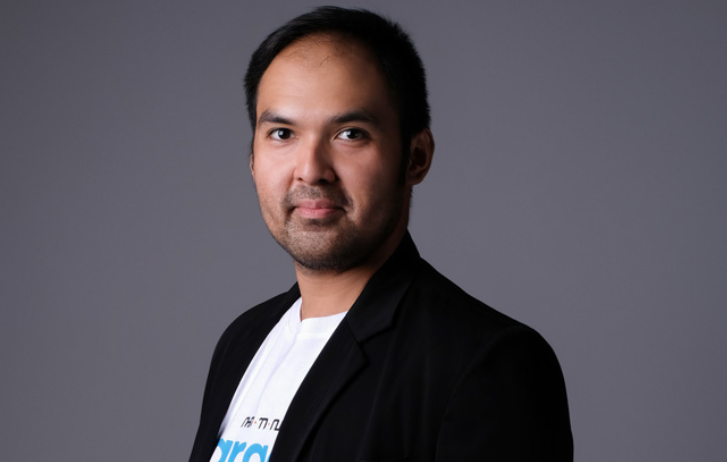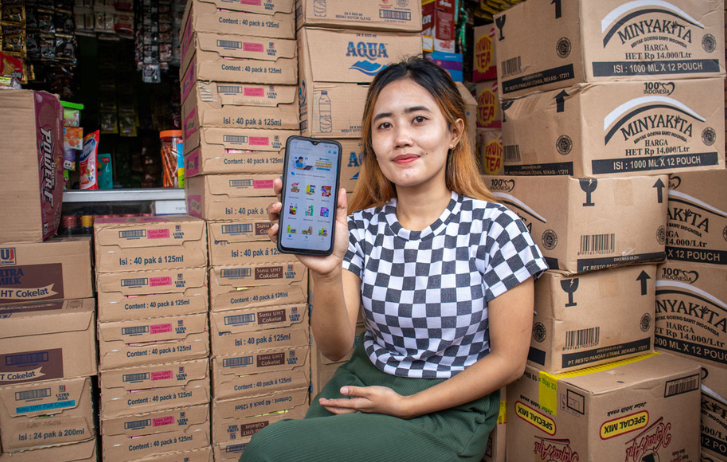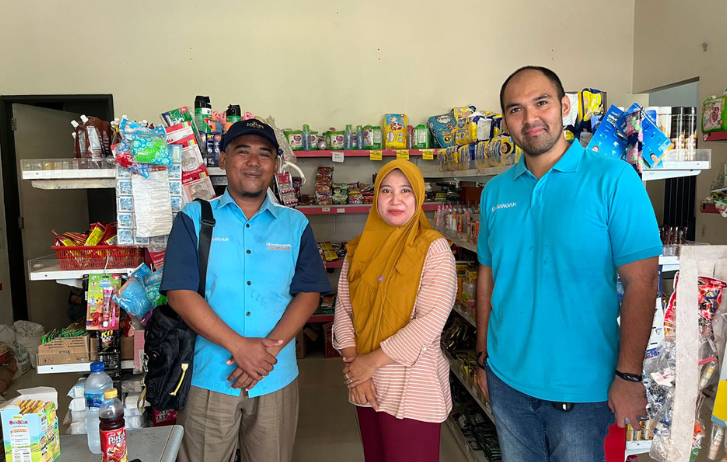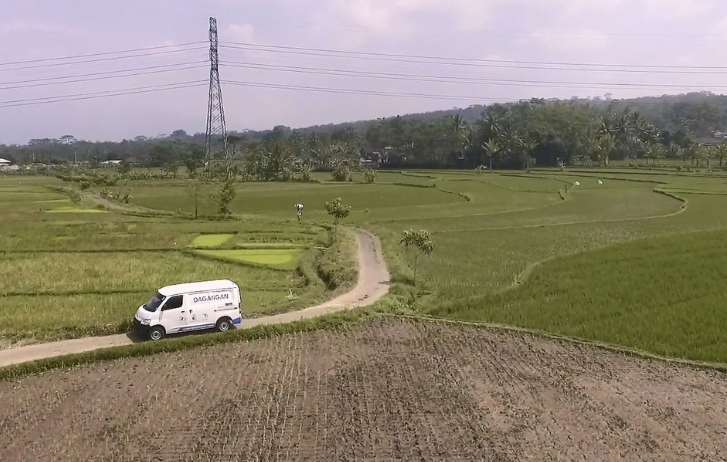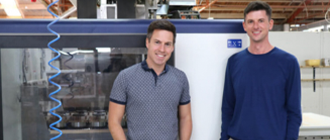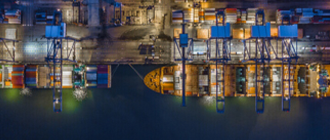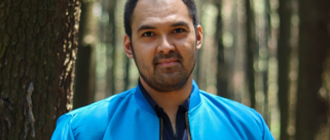
The CEO Creating A Lifeline For Rural Indonesian Communities
By FedEx | August 13, 2024
Ryan Manafe is the founder and CEO of Dagangan, a rural commerce platform providing affordable access to the daily necessities that remote communities need. In this edition of Confessions of a CEO, we explore how Ryan empowers homegrown businesses as a user-centric service provider.
Imagine living more than 10km from your nearest grocery shop or wet market. In some of Indonesia’s remotest villages, many struggle to access regular supplies without a long journey to the nearest city.
It only takes something small to cut a community member off from daily necessities: falling ill and being unable to drive; the family motorbike breaking down; a roadblock caused by monsoon weather.
Ryan Manafe, the former CEO of SUN Energy, saw a critical gap in Indonesia’s retail supply chain - and was determined to fill it. He founded Dagangan in 2019 with the goal to create more accessibility for underserved markets and benefit local communities, suppliers and small vendors.
With a vast network of suppliers and brand partners, Dagangan is empowering entrepreneurs to reach all 75,000 villages across the country, sparking innovation and driving positive community change. We spoke to him about his start-up journey.
Looking back on your start-up journey, what would you do differently? Was there ever a time when you thought you might not make it?
Ryan Manafe: When we started out, the focus for many venture-backed startups was growth at all costs. I regret getting caught up in this trend instead of staying true to my belief in sustainable, gradual growth.
Today, the definition of growth for venture-backed companies has shifted from relentless pursuit of scale to a focus on profitability. Instead of scaling rapidly, we built a strong infrastructure that has helped us achieve positive cash flow.
Failure taught us the importance of perseverance and continuous improvement.
Challenges still present themselves. The past two to three years have been tough for fundraising, especially during the tech winter. Enthusiasm for the B2B commerce sector has waned. Despite this, Dagangan has continued to grow sustainably and create value for our stakeholders.
How did you find your first 100 customers when you first launched Dagangan?
We started off with a lean, bootstrapped, product-focused team. We spent a lot of time in the field, understanding different types of customers. We aimed to serve a very specific target market and income, living at least 10km away from their local wet market.
We studied their purchasing behavior and kept experimenting with our initial business blueprint, including marketing, technical architecture, and sustainable monetization strategy. After much trial and error, we started to realize that our product really does add value to the daily lives of individuals in rural areas.
Local influencers started using the platform. Some even became our partners or employees. Our customers started earning more as well. Our proof of concept was validated by manufacturers who began appointing us for exclusive distribution.
How do you overcome the barriers to establishing commerce and distribution networks in rural areas?
At Dagangan, we face several operational challenges.
Limited logistics infrastructure is the biggest one. Our consumers live on average 10km from the nearest wet market. They need to travel back and forth with what they can carry on motorbikes, sometimes every day. This makes for inefficient logistics costs for round trips to the city.
Our solution was to establish a hub-and-spoke operating model. This helps consumers buy basic necessities and enables suppliers to sell to areas that were previously difficult to reach. We have more than 40 hubs spread across rural areas. Delivery of essential goods to consumers is faster, with more efficient logistics costs.
Rural customers can be skeptical of new products and services.
Another challenge is the low adoption of technology in rural communities. Rural customers can be skeptical of new products and services. They often have specific needs and questions that require personalized attention. Our job is to encourage them to learn and adapt to digital services.
Another challenge we face is building trust among close-knit local communities. The close relationships that exist there can be hard to penetrate. We work hard to liaise with community leaders, local entrepreneurs, and MSMEs, who play an important role in interacting with residents.
Through B2B partnerships, you enable growth for Indonesian small businesses and empower grassroots entrepreneurship. Is there a success story you’re particularly proud of?
We offer high-quality goods at affordable prices for Indonesia’s micro-stores. Instead of making long trips to urban suppliers, store owners use our app to order in bulk, get lower prices, and maintain reliable inventory.
One of our users, Yuliati, stands out with her story of resilience and growth. Yuliati runs a micro-store near the Merapi mountain, about 25km from the city center of Yogyakarta. Her fortunes transformed when she signed up to the Dagangan app.
With the help of our platform, Yuliati saw her daily earnings skyrocket from IDR 500,000 to IDR 2 million. Her newfound financial strength allowed her to expand her small business, attract more customers, and become a center of commerce in her local community.
Yuliati not only prospered, but passed on fair prices to her loyal customers. Yuliati's success story is just one of many in Dagangan's mission to support local businesses and drive the rural economy. Partners also profit. One partner, Coca-Cola Europacific Partners Indonesia, achieved remarkable growth, experiencing an 82% increase in GMV year-on-year.
What investment has led to the biggest ROI so far?
Our greatest investment has been in our local talent. We employ over 500 individuals who serve rural communities. Dagangan’s tech team, operations, sales, and founders are all locals who truly understand the market - either because they live in these areas or come from a rural background.
This investment has paid off tremendously. Their deep understanding of and connection to the rural market has given us a unique advantage, leading to substantial returns on our investment.
Despite the challenges in rural communities, our teams are willing to learn, develop and undergo training, which has significantly contributed to the growth of the company. Employees’ sense of community and culture of self-sustainability are not only crucial to our success; they create positive change in their villages.
Your business was established to meet the unique needs of rural Indonesian consumers. Have you thought about scaling your business model in similar markets?
Indonesia is our domestic market and we have built deep area penetration in rural tier 3-4 areas. We aim to scale faster by unlocking new markets, both geographically and through new businesses. We plan to expand our operational area in Java Island. In parallel, we want to launch new businesses in our existing coverage.
Dagangan believes rural areas offer tremendous business growth potential, but are often overlooked. Any advice for small businesses who want to tap this customer segment?
Living in a developing country has silver linings. As well as challenges, there are more chances to make a difference.
My advice is to start by looking at your surroundings. Pay attention to the real problems people are facing. Instead of looking far away for issues to solve, look right here at home. Then, here's the trick: try to come up with solid solutions.
Make sure these solutions come from your own special strengths, things that give you an edge. Turn what you're naturally good at into a superpower to fix things around you.
What is one belief you hold that other business leaders might disagree with you on?
I believe in putting the same rigor into people and culture as we do into numbers and performance metrics. This idea, highlighted in McKinsey's book "CEO Excellence," presents "soft" topics like talent, culture, and organization design as equally important to "hard" topics.
We focus on building a positive culture by encouraging feedback from everyone in our ecosystem. This allows us to create processes and make decisions that truly reflect the needs and ideas of our people.
Describe the greatest business failure that you treasure the most.
Initially, we operated in a market with challenging profitability. Our margins were lower than desired, which significantly impacted our operational costs. This limited our ability to innovate and make room for growth.
Despite this, we believed in the potential of our business. We undertook significant operations improvements and doubled our margins as a result.
Failure taught us the importance of perseverance and continuous improvement. It pushed us to optimize our operations, explore innovative revenue streams, and ultimately strengthen our business model. Today, we are more resilient and better positioned for long-term success.
SHARE THIS STORY
- Generative AI: A New Frontier
- How To Ship A Giant Panda
- How To Make Freight Shipments Work For Your Small Business
- The Rise Of Intra-Asia Trade: Opportunities In The China-Southeast Asia Corridor
- Where Do Old Planes Go When They Retire?
- What’s So Dangerous About Coconuts? Your Guide To Dangerous Goods Logistics
Sign up now and save on your shipping rates!
Sign up now and earn discounts by shipping instantly with FedEx Ship ManagerTM at fedex.com.
Recommended For You
Expanding to New Zealand? Check Out These Tips
Are you an Australian SME eyeing global markets? Start by taking your business across the Tasman with these tips.
How A New Zealand Family Business Found Global Success
This is the story of how Ashford Handicrafts successfully grew and expanded its textile craft equipment into global markets.
How SMEs Can Reap The Benefits Of The Australia-India ECTA
The Australia-India trade agreement means trade is set to grow between the two nations. Here’s what Australian SMEs need to know to unlock growth opportunities.
